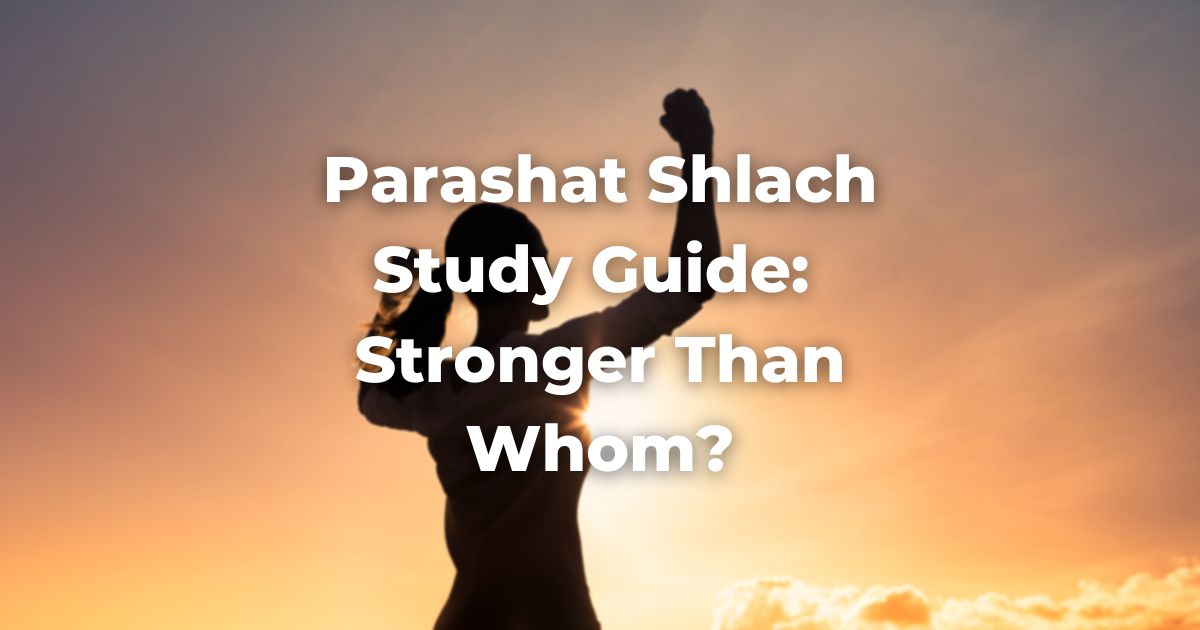In this week’s parashah, Moshe reprimands Aaron’s sons Elazar and Itamar for the sacrifice they offer: “Why did you not eat the sin offering in the sacred precinct?” (Leviticus 10:17).
Moshe tells them that they should have eaten of the sacrifice, rather than burn it entirely on the altar. This incident takes place immediately following the death of Aaron’s other two sons, Nadav and Avihu, who are consumed by fire when they offer an inappropriate sacrifice to God.
Are Elazar and Itamar equally at fault for improper ritual conduct?
The TalmudReferring to one of two collections, the Jerusalem and Babylonian Talmuds, edited in the 6th century, that contains hundreds of years of commentary, discussion, and exploration of the ideas in the Mishnah. One could describe it as Mishnah + Gemara = Talmud Read more and midrashThis word is used in two ways, as both a concept and a literature. As a concept, midrash is the expansive interpretation of biblical texts. The term is used to describe the practice of rabbinic interpretation. As a text, it refers to specific collections of interpretations, particularly from the third to ninth centuries in the Land of Israel and Babylonia. Plural: Midrashim
Read more, in expanding upon Moshe’s response, offer us a lesson in anger management that applies both to the sacred precinct and to the more quotidian settings and situations in which we find ourselves.
According to the account in our parashah, Elazar and Itamar keep silent in response to Moshe’s rebuke. Perhaps they are reluctant to defend their behavior to their uncle, whom they regard with tremendous respect.
Aaron, as Moshe’s brother, feels more comfortable talking back to his brother, and so it is he who explains that it would not have been right to eat the sacrifices while in a state of mourning for Nadav and Avihu. Moshe approves of Aaron’s explanation—“it was good in his eyes” (Leviticus 10:20)—and no fires break out this time.
What seems like a relatively straightforward account in our parashah becomes complicated by the ancient rabbis’ struggle to understand how Moshe could have been unfamiliar with the law that one who has recently lost a close relative does not eat of the sacrificial offerings.
Why didn’t Moshe understand immediately why Elazar and Itamar didn’t partake of the sacrifice? Why did Aaron have to remind Moshe of this law?
In the midrash (Leviticus Rabbah 13:1) Rav Huna explains that when Moshe saw the offerings burning on the altar, he grew angry, and on account of his anger, he forgot the law. Presumably, he was so overpowered by his emotion that his rational brain—the part that knew the law—was unable to function properly.
Linking anger with forgetting
Rav Huna goes on to relate that this was one of three incidents in which Moshe forgot the law on account of his anger.
It happened as well when the manna fell for the first time and the people ignored Moshe’s injunction not to leave any manna over until the next day; as a result of his anger at the people’s disregard, Moshe forgot to teach the people to gather two portions of manna before Shabbat (Exodus 16).
And it happened again during the war against the Midianites, when Moshe grew angry at the Israelites for sparing all the enemy women (Numbers 31); as a result of his anger, Moshe forgot the laws about purifying metal vessels which he was supposed to teach the people, and Elazar the priest had to teach them in his stead.
Although Rav Huna does not cite any other incidents in which Moshe’s anger caused him to forget the law, we might also note that when Moshe descended Mount Sinai for the first time, his anger upon witnessing the people worshiping the golden calf caused him to shatter the tablets. The Talmud (Eruvin 54a) comments that “If the first set of tablets had not been broken, TorahRefers to the first five books of the Hebrew Bible, the Tanakh, also called the Five Books of Moses, Pentateuch or the Hebrew equivalent, Humash. This is also called the Written Torah. The term may also refer to teachings that expound on Jewish tradition. Read more would not have been forgotten from Israel,” again linking anger with forgetting.
Other sources on anger and forgetting
The Talmud (Pesachim 66a) expands on the association between anger and forgetting in an extended midrash about Hillel the Elder, then a newcomer from Babylonia, who was appointed head of the Sanhedrin because of his ability to remember a law the rest of the people had forgotten.
Hillel grew angry at the people for failing to remember this particular law, and he reprimanded them harshly: “What caused this to happen to you, that I should come up from Babylonia and become leader over you? It was the laziness in you!” The people then went on to ask Hillel about another point of law, and this time, Hillel forgot the answer.
The Talmud, in commenting on this incident, teaches, “Any person who becomes angry, if he is a Torah scholar, his wisdom departs from him; if he is a prophet, his prophecy departs from him.” Since Hillel rebuked the people angrily, he forgot the law, just as Moshe forgot the law upon growing angry at Elazar and Itamar.
Why are anger and forgetting so intimately bound up in one another?
Elsewhere in the Talmud (Shabbat 105b) we learn that anger was not just regarded as a moral failing, but a spiritual one as well.
The issue comes up in the context of ripping one’s clothing on Shabbat: may a person rip his clothes in a fit of anger? The Talmud explains that one who engages in destructive behavior in a fit of rage should be viewed as an idolator: “Because this is the craft of the evil inclination. Today it tells him to do this, and tomorrow it tells him to do that, until eventually, when he no longer controls himself, it tells him to worship idols and he goes and worships idols.”
A person who succumbs to anger will inevitably succumb to more sinister forces as well, including idol worship. When we grow angry, we cannot control our behavior and we cannot think straight, and so the evil inclination is able to gain a foothold.
Keeping our cool
Rabbi Avin continues with a close reading of the biblical command, “There shall be no strange God within you, and you shall not bow down to a foreign god” (Psalms 81:10).
What is the strange god within a person’s body, asks Rabbi Avin?
This is the evil inclination, he explains. According to this more psychological understanding, anger does not just lead to idolatry; it also becomes idolatry. We become so enslaved to our anger that it controls us, and we lose the ability to act of our own free will. When we are angry, we are all the more likely to speak and act in ways that we will regret.
Unlike Moshe, who grows angry at Elazar and Itamar and reprimands them harshly for their behavior, Aaron has a more measured response. When Aaron learns that his sons Nadav and Avihu have been consumed by divine fire, he does not cry out in anger or outrage; the Torah merely tells us, “And Aaron was silent” (Leviticus 10:3). If Aaron is angry at his son’s behavior or at the harsh divine response, he does not allow his anger to overcome him as Moshe did just a few verses later.
Ironically it is Moshe, who identified himself as “slow of speech and slow of tongue,” who is all too quick to snap at Aaron’s sons; and it is Aaron, who is identified as the more fluent speaker, who knows when to hold his tongue.
Perhaps the Torah is trying to teach us that it is never wise to react out of anger.
When we lash out angrily at others, it is not really we who are speaking, but the evil inclination that takes control of us from within. Far better, in moments of anger, to keep silent until our distress is not as acute and we can react more calmly and clear-headedly. By keeping our cool, we can keep our perspective.
See more: Parashat Shemini
Originally posted as part of the Conservative Yeshiva at the Fuchsberg Jerusalem Center’s Torah Sparks. Support Torah learning from the Fuchsberg Jerusalem Center/Conservative Yeshiva for leaders and seekers around the world here.
Authors
-

Ilana Kurshan teaches Talmud at the CY. She is the author of If All the Seas Were Ink (St. Martin’s Press, 2017) and Why is This Night Different From All Other Nights (Schocken, 2005). She has a degree in History of Science from Harvard and in English literature from Cambridge, and has worked in literary publishing both in New York and in Jerusalem – as a translator, a foreign rights agent, and as the Books Editor of Lilith Magazine. Since October 2020, Ilana has been a regular contributor to Torah Sparks, FJC’s weekly parashat hashavuah blog.
View all posts -



The Fuchsberg Jerusalem Center (FJC) is a home in the heart of Jerusalem where leaders and seekers can find an authentic place in Jewish tradition to call their own. FJC offers opportunities to study, pray and explore within an egalitarian and inclusive setting, creating multiple pathways for finding personal and communal meaning.
View all posts






